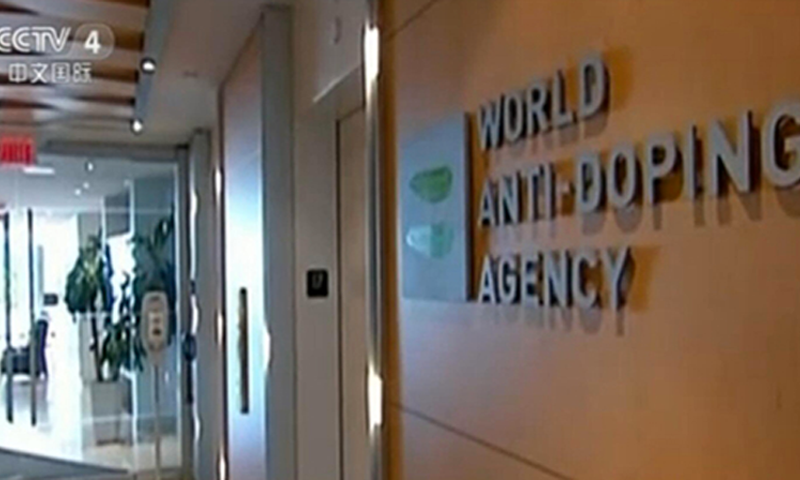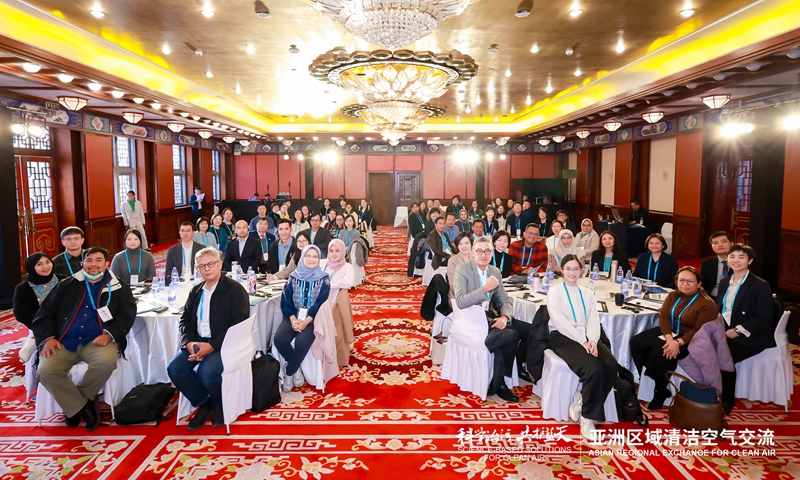US reportedly holds up payment to WADA, a 'hegemonic move politicizing sport'

The spat between the US and the World Anti-Anti-Doping Agency (WADA) continues after the 2024 Paris Olympics, with a recent media report saying the Biden administration is holding up the annual US payment to WADA to press the organization as it "chose not to discipline elite Chinese swimmers who tested positive for a banned drug."
According to a New York Times report, the White House has told WADA that it needed to have "more accountability and transparency" and that it must submit to a wide-ranging outside audit of its operations.
A WADA spokesperson told the Global Times in an email on Thursday that WADA has not received any notification from the US Government that it has decided to voluntarily withhold its annual contribution for 2024.
The agency also said "WADA is unaware of any conditions that the US Government wishes to attach to its payment… no provision exists within WADA's governance model whereby a government may unilaterally withhold its contribution based on its own set of conditions."
The Biden administration made its 2023 payment for $3.4 million in August of last year. The payment for this year was expected to be paid around the same time, but so far relevant US official has yet to sign off on having the money sent.
Shang Ximeng, a research fellow at the Center for International Sport Communication and Diplomacy Studies at the Beijing Foreign Studies University, told the Global Times that the US has repeatedly threatened WADA with default or refusal to pay the annual dues, but as a signatory to the WADA Code, the US is obligated to pay it.
She noted that the US has not only played these kinds of tricks in international anti-doping cooperation, but has frequently threatened to do the same with respect to other international cooperation.
Li Haidong, a professor at the China Foreign Affairs University, said the US' political manipulation has not only weakened WADA's authority, but also slandered China's anti-doping efforts, and undermined the global efforts in the regard.
US' attempts to hijack international organizations exposed its hegemonic mindset and politicizing sports for political purposes, Li noted.
In April this year, along with USWADA, The New York Times hyped that some Chinese swimmers tested positive for trimetazidine (TMZ) before the Tokyo Olympic Games in 2021, accusing WADA of shielding Chinese athletes and failing to hold them accountable.
WADA has commissioned an independent review into the reported incident after refuting these claims, labeling them as "misleading and potentially defamatory media coverage." The agency said that following the TMZ contamination incident in swimming in 2021, the China Anti-Doping Agency (CHINADA) promptly initiated a comprehensive and meticulous investigation, and based on its results, it was determined that the TMZ positives among these athletes resulted from inadvertent ingestion of contaminated food without their knowledge, and therefore no further doping charges were brought against those athletes, according to previous reports from the Global Times.
In September 9, the independent Swiss prosecutor Eric Cottier backed WADA's handling of the issue in his final investigation report, saying that WADA had not been complacent nor shown bias toward China, according to a Reuters report.
WADA was established in 1999 as an international independent agency to lead a collaborative worldwide movement for doping-free sport.
